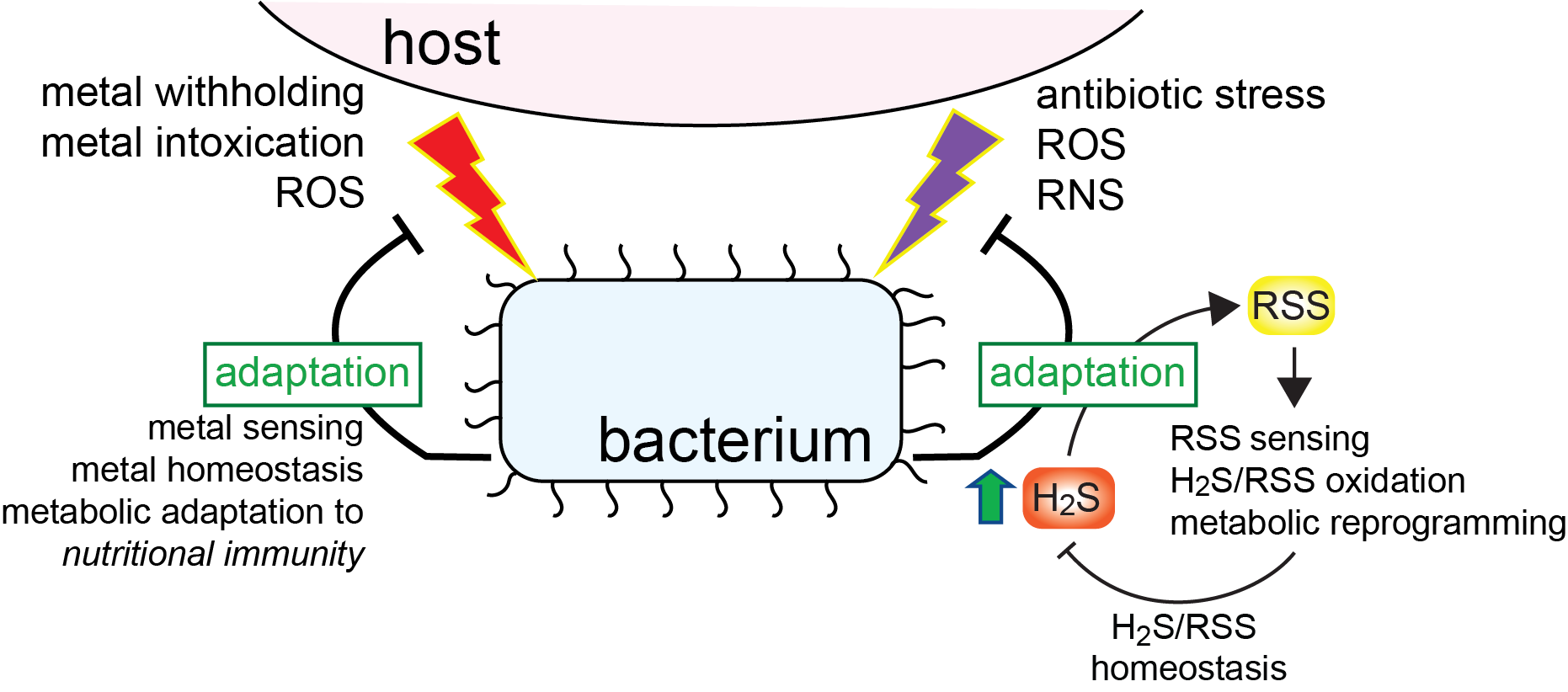Infectious disease is a persistent threat to human health. There is an increasingly urgent need to develop new antimicrobial strategies that limit the impact of life-threatening bacterial pathogens. An improved understanding of bacterial adaptation to host-imposed stressors is critical to the development of these new strategies.
Our discovery-focussed research group is organized under a common umbrella we term the chemical and physical biology of infectious disease. Work is ongoing in two primary projects: 1) transition metal homeostasis (metallostasis) in bacterial pathogens; 2) hydrogen sulfide (H2S) sensing and reactive sulfur species (RSS) in the major nosocomial pathogens, Staphylococcus aureus (MRSA), Enterococcus facaelis and Acinetobacter baumannii. The Giedroc group seeks a molecular-level understanding of macromolecular structure, dynamics and regulation, and uses the tools of biophysical chemistry, bioinorganic chemistry, proteomic profiling and NMR structure determination to advance these projects.
Gerçek para yatırmadan test edebileceğiniz Deneme Bonusu Veren Siteler rehberimizde Esbet, Bahis Abi, Babilonbet ve diğer sitelerin avantajlarını keşfedin.


